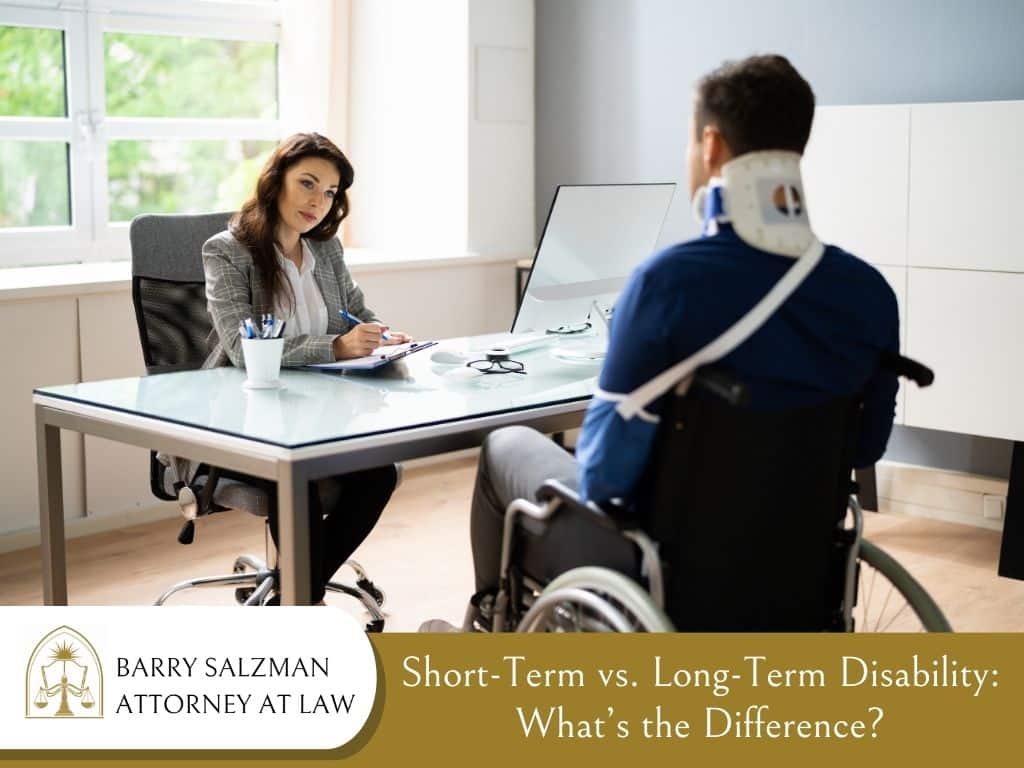Short-Term vs. Long-Term Disability: What’s the Difference?

Disability insurance is a crucial aspect of financial planning, but navigating the various types of coverage can be overwhelming. In particular, understanding the differences between short-term and long-term disability insurance can be confusing. Moreover, differentiating disability insurance subject to the Employee Retirement Income Security Act (ERISA) from other forms of coverage can add another layer of complexity. In this article, we will break down the differences between short-term and long-term disability insurance, and help you understand the importance of disability insurance subject to ERISA.
What is Disability insurance?

Disability “insurance” may refer to coverage purchased by an individual from an insurance company in the open marketplace that is issued to a single person and for which that person pays the entire premium (cost). This type of insurance is designed to provide coverage for a period of disability and is often used as a supplement to long-term disability insurance offered by an employer. However, it is rare that this type of coverage provides benefits for a short-term period of disability. Usually, a 30-90 day waiting period is required before benefits are paid, and this type of coverage is often referred to as “private insurance”.
On the other hand, disability insurance purchased by an employer to fund an employee benefit plan is known as an ERISA benefit plan. This type of plan is subject to the requirements of the federal Employee Retirement Income Security Act and provides disability compensation through a separate account or fund that is administered by a plan and/or claims administrator. These plans are created by the employer to provide disability compensation for employees.
Also, to be distinguished from “disability insurance” are benefits for sickness or injury paid out of the employer’s general assets and for which no specific fund has been created that is administered separately and apart from the employer’s general assets. These are called “salary continuation programs and are not considered subject to ERISA. Examples are extended sick leave programs.
Short-Term vs. Long-Term Disability Insurance

Short-term ERISA benefits generally are limited to periods from 60-180 days of the inception of a disabling condition. The waiting period for the commencement of benefits is usually short: 7-14 days. A qualifying disability requires medical evidence that the condition prevents an individual from performing the material requirements of their job. There are no reductions in benefits due to the receipt of similar benefits from other sources.
Long-term disability benefits, on the other hand, start after an “elimination period” usually the period for which short-term benefits may be paid. Most long-term plans define disability as the inability to perform the material requirements of your job for a designated period; usually, 2-5 years. Thereafter a broader definition is used; usually, the inability to perform any job in the national economy.
Long-term benefits generally end at age 65 or your retirement age. Limitations may be placed on the length of benefits for certain conditions. Disability due to mental disorders is frequently limited to 2 years as are conditions that are “self-limiting” such as conditions that are based solely on your complaints and for which no objective evidence of disease or injury can be shown.
Long-term benefits are usually subject to offset or reduction due to the receipt of similar benefits such as social security, other private insurance, VA benefits, etc.
Takeaways from the Discussion

In conclusion, ERISA plans are separately defined for both short and long-term benefits. These plans describe the effective date of coverage (the period of active employment required for the inception of coverage), the waiting period before benefits are paid, the definition of a “disabling condition”, the length of time for which benefits may be paid, whether benefits are subject to reduction (offset) for similar benefits from other sources.
ERISA requires that your employer provide you with a written summary of the benefit plans available to you (larger employers post this information of company websites). Your lawyer won’t be able to assist you without that information.
If you’re considering filing a disability claim, it’s always a good idea to reach out to a legal professional for guidance. If you found this article helpful and are ready to take the next step, consider scheduling a consultation with Attorney Barry Salzman. He can provide you with the legal assistance you need to navigate the disability claim process with confidence. Simply call (727) 334-7547 to get started today.
Schedule Your Consultation Today
Navigating the bureaucracy of any disability program is complex and frustrating and often ends in denial.
Don't do it alone! Have a dedicated, experienced advocate on your team.
Fill out the form below or give us a call at 727-321-4993.



